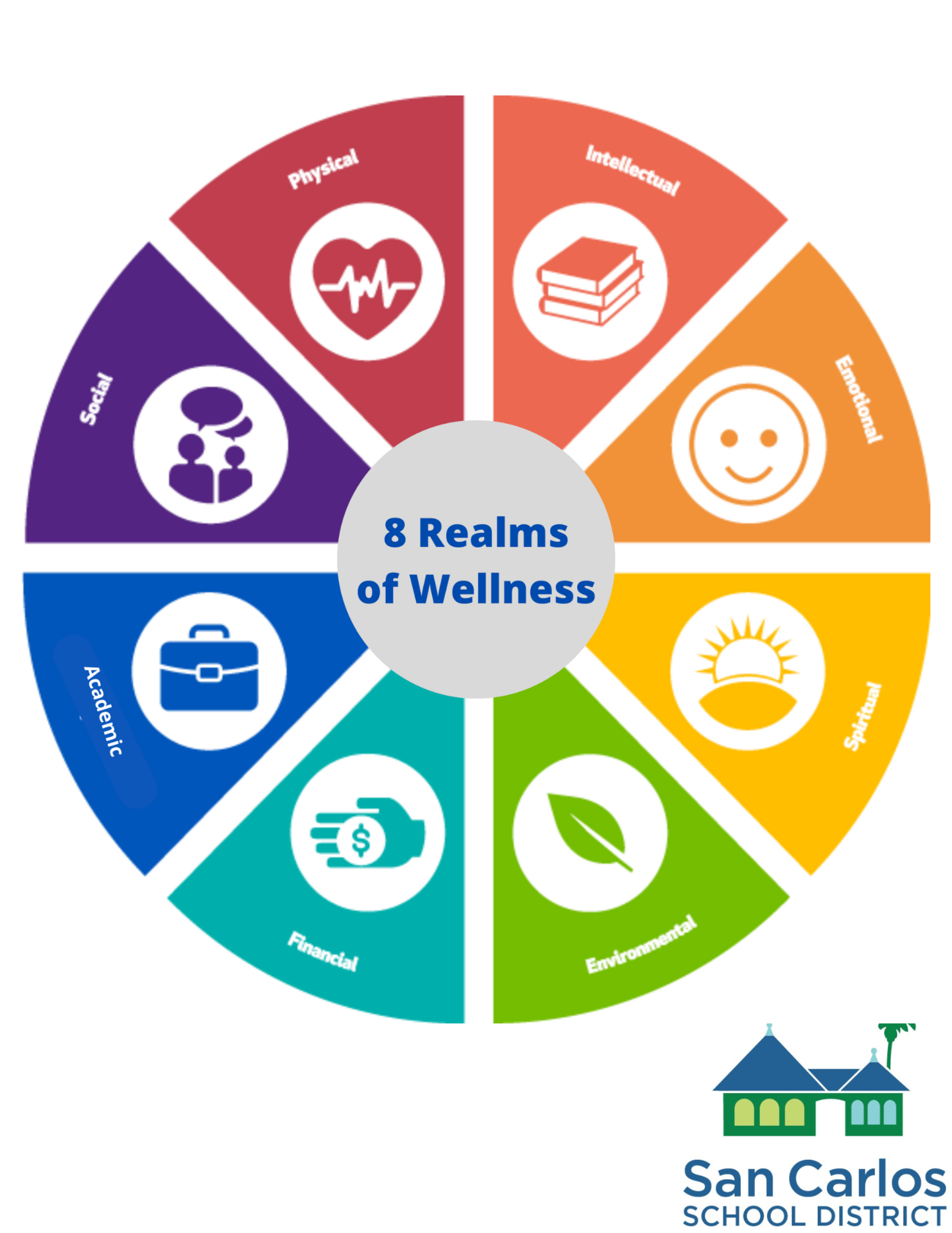
We utilize the 8 Realms of Wellness to frame our work (when age-appropriate.) The 8 Realms of Wellness include:
Emotional: An awareness, understanding, and acceptance of our feelings, and our ability to manage effectively through challenges and change. For students, staff, and caregivers, this may look like journaling at the end of each week to check in on how they are doing.
Spiritual: This means something different to everyone. In general, this means expanding a sense of purpose and meaning in life, including one's morals and ethics, and understanding yourself and your place in the world. Please note, spirituality and religion are NOT the same thing. For students, staff, and caregivers, this may look like volunteering at the school garden once a month to connect to nature and help the environment.
Environmental: Feeling connected to, and taking care of, the environment. Additionally, this means ensuring you are getting outside in nature regularly. For students, staff, and caregivers, this may look like exploring a new park once a month with their family.
Financial: Having an awareness around your finances, and ensuring you are spending in appropriate ways. This may not be applicable to students currently. For students, this may look like saving half of what they making walking the neighbor's dog for their future. For staff and caregivers, this could look like developing (and sticking to!) a manageable budget.
Academic/ Occupational: Expanding your knowledge and creating networks to support lifelong learning and ensuring you feel connected to and engaged with your class material. For students, this may look like forming a study group with friends to support each other’s learning. For staff and caregivers, this may look like noticing moments when you make a positive difference in a student or colleague's day, and holding onto those.
Social: Building healthy, nurturing, and supportive relationships as well as fostering a genuine connection with those around you. For students, staff, and caregivers, this may look like eating lunch with a new friend/ colleague several times a month.
Physical: Developing awareness around, and taking care of, our physical body. This category includes movement, sleep, nutrition, staying safe physically, hygiene, and immunity. For students, staff, and caregivers, this may look like developing a consistent evening routine.
Intellectual: Being open to new ideas, thinking critically, and finding ways to be creative. For students, staff, and caregivers, this may look like completing an activity twice per week that stimulates your mind in a new way (watch a documentary, do a crossword puzzle, read a book.)

 We utilize the 8 Realms of Wellness to frame our work (when age-appropriate.) The 8 Realms of Wellness include:
We utilize the 8 Realms of Wellness to frame our work (when age-appropriate.) The 8 Realms of Wellness include: